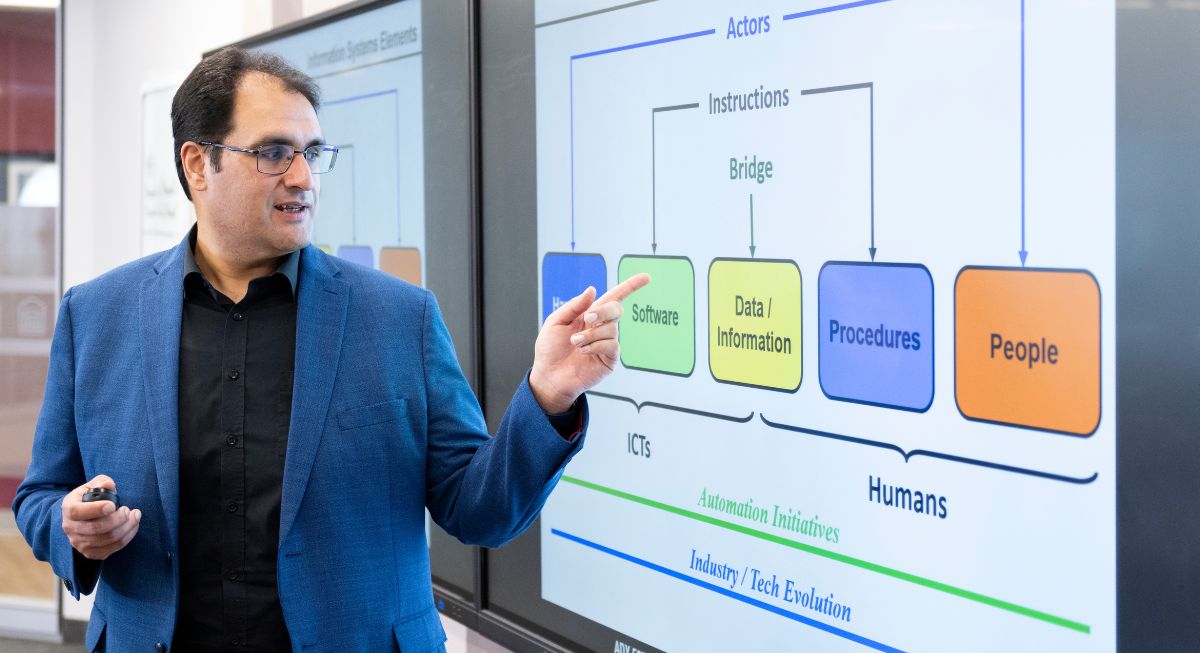Entrepreneurs know that start-up failure rates are high: according to Statistics Canada, “20% of start-ups fail in their first year and around 60% will go bust within their first three years”. Consequently, many entrepreneurs experience entrepreneurship as a period, or multiple periods, on their journey and not as a continuous career path. But what is unclear is how these entrepreneurial experiences affect subsequent career patterns, success, and individual well-being. Professors Hien Tran and Mark Freel have been awarded a Social Sciences and Humanities Research Council Insight Grant to study the career path of entrepreneurs and to examine how cycles of entrepreneurial experience influence their future behaviours and circumstances.
Project title: Understanding the consequences of entrepreneurship as an episodic phenomenon.
We asked Professor Tran why she is interested in this research area. “It has been widely accepted that entrepreneurial ventures are short-lived and that entrepreneurship is simply (an) episode(s) in one’s career pattern. To this end, knowing what happens to the many ‘ex-entrepreneurs’ after their exit event is critical to understanding both the returns to entrepreneurial endeavours and the entrepreneurial process in its entirety. This ought to inform individual career choices and pro-entrepreneurship policy.”
According to Professor Freel, “most studies of entrepreneurship are concerned with ‘becoming’ or ‘being’, with a focus on opportunity recognition, resource acquisition, innovation, and so on. However, the reality is that most entrepreneurs quickly become ex-entrepreneurs and their experience of entrepreneurship is one of ‘having been’. Our goal is to provide a counterpoint to the normative bias of persistence in much of the entrepreneurship literature to help us get a better handle on the consequences of entrepreneurship for individuals."
Entrepreneurial experiences and their outcomes
Small businesses experienced the brunt of the COVID-19 pandemic lockdowns. Many business owners had to gauge how long their business could survive with each cycle of lockdowns and re-openings, and many small Canadian businesses had to close their doors indefinitely. Even long-established businesses in small communities were forced to close after decades of serving Canadians. It is unclear what impact this pandemic experience will have on entrepreneurs and their futures.
Despite failure, some entrepreneurs recover, re-emerge, and engage in new ventures. If entrepreneurship is a non-linear journey of cycles of employment and unemployment, each experience will undoubtedly leave an impact on the entrepreneur. Professors Tran and Freel will use Statistics Canada data to explore how long the financial, psychological, and social consequences of entrepreneurial experiences last, and how they affect an entrepreneur’s future careers, well-being, and family and social life.
Professor Tran says “My expectation is that an episode of entrepreneurship may have an enduring impact on future earnings and employability, and that a persistent self-employment career is vital for reaping not only monetary benefits, but also non-pecuniary returns, such as career success, life satisfaction, and perceived happiness. Happiness is contagious. Happy entrepreneurs would spread their positivity to family members, their social networks, and the surrounding community.”
Research benefits
The knowledge gained from this work will contribute to the field of entrepreneurship and provide a better understanding of the entrepreneurial experience from an individual perspective. The insights learned will present a holistic picture of the drivers that influence a return to entrepreneurial ventures following failure, and how these experiences impact future career paths and personal outcomes. This work could influence government policies and services that seek to improve education and professional training, as well as business development initiatives to support entrepreneurial projects and their success.

Dr. Hien Tran is Associate Professor at the Telfer School of Management in the area of Strategy and Entrepreneurship. Her current research is concerned with innovation and entrepreneurship in transition countries, and how entrepreneurial knowledge spillover can facilitate trading activities between developed markets and emerging markets.

Mark is the RBC Financial Group Professor for the Commercialisation of Innovations. He is an associate editor at the Journal of Small Business Management. He holds a visiting professorship in the Department of Entrepreneurship and Strategy, Lancaster University Management School. His research is concerned with the role of entrepreneurship in economic and business development and is funded by funding councils and governments.











